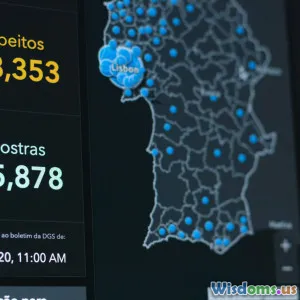
The Role of Undercover Agents in Uncovering Terror Plots Explained
7 min read Explore how undercover agents play a pivotal role in thwarting terror plots worldwide through intelligence, infiltration, and strategic operations. (0 Reviews)
The Role of Undercover Agents in Uncovering Terror Plots Explained
Terrorism remains one of the most pressing global security challenges today. Behind the scenes, a shadowy group of operatives—undercover agents—work relentlessly to dismantle plots before they can come to fruition. Their work is defined not only by courage and skill but by profound intelligence and strategic finesse. This article dives deep into the complex, high-stakes role of undercover agents in thwarting terror, illuminating their strategies, challenges, and impactful successes.
Introduction: Unseen Heroes Against Terrorism
Imagine walking a razor's edge between danger and safety, where a single misstep could reveal your identity and compromise a mission that saves countless lives. Undercover agents embody this tension daily, engaging with terror networks from within. The stakes are unimaginably high, yet their work largely remains unrecognized outside intelligence circles. By infiltrating terrorist cells, gathering critical intelligence, and facilitating arrests, undercover agents serve as a vital first line of defense.
With evolving terrorist tactics and increasingly decentralized networks, the role of undercover operatives has become indispensable in adapting to new threats. This article unpacks how these stealth operatives penetrate clandestine groups, the legal and ethical landscape they navigate, and the crucial successes they've achieved in recent history.
The Strategic Significance of Undercover Agents
Undercover agents perform a variety of tasks beyond mere surveillance. Their primary aim is to obtain actionable intelligence that can prevent attacks and lead to the apprehension of key figures in terrorist networks.
Infiltration: Getting Inside Terror Networks
The process begins with gaining trust—a task requiring impeccable psychological insight and cultural adeptness. Agents often immerse themselves in communities to blend with potential suspects subtly. For example, during the 2006 Toronto 18 terror case, undercover agents in the Royal Canadian Mounted Police successfully posed as sympathizers, gathering intelligence that led to convictions before any harm occurred.
Agents must balance appearing genuine without actually endorsing or committing crimes. This makes operational guidelines and oversight pivotal.
Intelligence Gathering and Communication
Collected information must be meticulously documented and passed through secure communication channels to analysts and decision-makers. In some cases, agents record conversations or capture photographs to corroborate actionable intelligence. Agencies employ advanced encryption and compartmentalization techniques to prevent leaks and safeguard the agent's identity.
Managed Operations and Sting Missions
Sometimes, agents work with tactical teams to set traps or staged transactions that expose conspirators unequivocally. The much-publicized sting operation busting the Radical Islamic terrorist cell in London in 2007 exemplifies this, where undercover surveillance prevented a bombing plot targeting passengers on public transport.
Challenges Faced by Undercover Operatives
The path of an undercover agent is fraught with multifaceted challenges:
Psychological Toll and Identity Risks
Long-term undercover work can disrupt an agent’s sense of self, leading to stress, PTSD, or moral dilemmas. The duality of living a fabricated identity necessitates robust psychological support systems. For example, after the infiltration of the Aryan Brotherhood in the U.S., some agents required extensive counseling due to the harrowing experience.
Legal and Ethical Constraints
Agents must navigate complex legal boundaries, ensuring evidence is gathered lawfully to stand up in court and respecting civil liberties. Legal frameworks like the U.S. Patriot Act and European Counterterrorism laws guide operations but also spark debate about privacy and entrapment.
Technological and Operational Adaptations
Terrorists increasingly use encrypted communications and internet anonymization tools to evade detection. Undercover agents, therefore, must combine traditional infiltration with digital intelligence (cyber-ops), often requiring multidisciplinary expertise.
Real-World Successes Illuminated
Recovering from these challenges, numerous operations underscore the effectiveness of undercover agents:
-
The 2009 ‘Fort Dix Six’ Case (USA): Undercover agents infiltrated a terror cell planning to attack military personnel. The collected intelligence prevented multiple casualties.
-
Operation Guava (UK, 2013): MI5’s long-term undercover operations disrupted a UK-based extremist group planning attacks in multiple cities.
-
French Anti-Terrorism Sting (2015): Agents successfully posed as traffickers, providing weapons to uncover Islamic State sympathizers.
These examples demonstrate that proactive infiltration, not just reactive measures, has become central to counterterrorism strategy.
The Future: Enhancing Undercover Operations
The evolving nature of terror threats demands future-focused strategies:
-
AI and Data Analytics: Agents are increasingly supported by AI-driven predictive models to identify and prioritize threats.
-
Cross-Border Collaboration: Global terrorism requires joint operations and intelligence sharing between nations’ agencies.
-
Enhanced Cultural Training: More immersive training programs prepare agents to navigate complex sociocultural environments effectively.
Agencies continue to refine operational doctrines to minimize risks while maximizing intelligence yield.
Conclusion: Vigilance in the Shadows
Undercover agents represent a delicate and indispensable edge in the fight against terrorism. Their courage and dedication are instrumental in turning the tide against terror plots that would otherwise remain shrouded in secrecy. Though their work involves immense risk and ethical challenges, the rising tide of thwarted attacks underscores the vitality of their mission.
As global threats evolve, society must appreciate and support these operatives’ efforts—beyond spotlight and recognition—with continued policy support, psychological care, and technological innovation. By understanding their role, the public gains insight into the complex, layered reality of modern counterterrorism and the unseen battles fought daily to keep us safe.
Rate the Post
User Reviews
Popular Posts

















